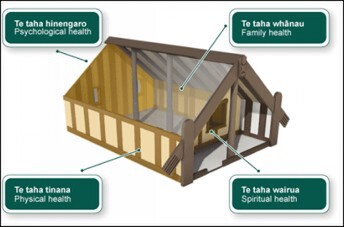Are you part of a company that wins work in NZ from government departments, agencies or from local government? If so, you might want to pay attention now:
In October 2018 the New Zealand Government announced that it 'recognised that its procurement activities offer a unique opportunity to achieve broader cultural, economic, environmental and social outcomes for New Zealand'.
Under the header of Broader Outcomes, the Government identified four priority outcomes for agencies to start focusing on:
1. Increasing access for NZ businesses
2. Construction skills and training
3. Improving conditions for NZ workers
4. Reducing emissions and waste.
Then, during 2019 the government introduced the Climate Change Response (Zero Carbon) Amendment Bill, the Wellbeing Budget, the Construction Accord and, most recently, the Transformation Plan.
These four initiatives are just some of the visible signs of its massive strategic emphasis on achieving a range of social, economic, cultural and environmental outcomes: specifically reducing carbon use and waste, increasing wellbeing and safety at work, doing more to support disadvantaged ‘priority’ populations, and doubling down on reducing cost.
In short, this strategy is about getting companies to focus - and deliver - on the following concept, acting as:
This is part of a wider global phenomenon, but it has been uniquely New Zealand-ised through the inter-weaving of two fundamental Māori world view concepts: Kaitiaki (custodianship, guardianship, stewardship – guarding the sky, the sea, the land) and Hauora (a unique view of health and wellbeing that covers the physical, mental, social and spiritual needs that everyone has. Each of these concepts supports the others).
See more on the topic here:
The Government is clear about what it now wants to see from supplier-partners in its orbit
Moreover, this has been flowing through into procurement approaches now for months:
- In its public documents, Kāinga Ora is clear that it is all about ‘delivering public value: stewardship and assurance’, looking to ‘ensure the stewardship of public funds, and to provide excellent maintenance service outcomes to customers so they can live in warm, dry, safe and healthy homes.’ It will do this by operating ‘sustainable and inclusive procurement rules, as well as seeks broader outcomes for the public spend. This includes working with Suppliers to make sure they are sustainable, as well as providing a wellbeing environment for their workers to operate in.’
- Watercare has embedded a long-term Enterprise Model that emphatically prioritises the right partnerships: ‘It is important to Watercare to partner with organisations whose cultural and collaborative behaviours align and are committed to delivering the best outcomes for our customers. It is important that everyone involved in the Enterprise Model is committed to our overarching 40:20:20 Vision.’
What’s that? 40% reduction of carbon in construction by 2024, 20% reduction in cost by 2024, 20% reduction in the number of injuries year on year.
And these are just two of many, many organisations – all prioritising these concepts, and seeking ideas from supplier partners to increase ways to increase the numbers of disadvantaged people working in their companies, and do more to help other companies into the sector.
So what are you doing about it?
Time to take the test. Here we go:
Question 1:
Do you understand what the Broader Outcomes are about, and do your company policies, procedures, actions - and communications – match the Government’s language and aspirations?
Question 2:
Do you already have a CSR policy, procedures and initiatives, but a) the documents need to be updated to reflect this new language, and/or b) have you already created new documents and initiatives under the Broader Outcomes structure?
Question 3:
Are you communicating what you are doing in these areas, so that central and local government clients can see how you are aligned with this new world?
Scoring:
If you said ‘Yes’ in answer to two or more of the questions above, well done. You’re well on the way to success. If however you answered ‘No', I recommend that you give them urgent attention.
But only if you want to win work going forwards.
………………………………………..
Of course, The Clarity Business can help you with this. We’re helping our clients to be clear about what the Broader Outcomes mean for them, and how they can shape their activities, documents and communications to ensure they are genuine – and communicative – agents of the changes that the government wants to see.
So do get in touch if we can help you - we're keen to do so.





